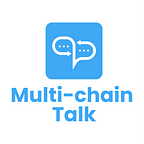The Future of Digital Identity
A new level of trust, privacy, and security in the digital world.
Decentralized identification, also known as decentralized identity or DID, is an emerging technology that has the potential to revolutionize the way we think and manage our personal data online. At its core, decentralized identification is about empowering individuals with control over their own data, and giving them the ability to share that data on a need-to-know basis, without relying on centralized systems to manage or authenticate their identity.
The internet has enabled us to connect with both people and information from all over the world, but it has also created new challenges in terms of privacy, security, and trust. With the centralized platforms we know today, we are often required to surrender our personal data to third-party entities in order to access their services. This opens us to the risk of data breaches, identity theft, and other forms of digital harm.
At its core, decentralized identification is all about empowerment. It gives us greater control over our personal information and how it is shared, creating a more secure and transparent digital landscape. But what exactly is decentralized identification, and how does it work?
The Advent of Decentralized Identification
The concept of decentralized identification has been around for several years, but it is with the advent of blockchain technology that it has now become a possibility. This is because blockchain technology enables a decentralized and tamper-proof record of transactions. This makes it an ideal tool for building decentralized identity systems.
At the heart of decentralized identification is the concept of self-sovereignty. This means that individuals are the sole owners and controllers of their digital identities, and have the ability to share their data on their own terms, without relying on centralized authorities. This is a fundamental shift from the current paradigm, where we are often required to surrender our personal data to third-party entities in order to access their services.
The potential benefits of decentralized identification are many and varied.
For individuals:
- greater privacy,
- security,
- autonomy over personal data.
For businesses and organizations:
- lower costs,
- improved efficiency,
- reduced liability with regard to data breaches and other cyber threats.
Decentralized Identification is not something that benefits individuals and businesses alone. It also impacts society as a whole, by providing with it a more equitable and decentralized internet, where power is distributed more evenly among individuals and communities. No longer will we be beholden to a centralized entity holding our personal data and monetizing it without our express consent.
Decentralizing Identification Today
The area of decentralized identification is quickly becoming more prominent as people become aware of the necessity for better security and privacy-centric digital identity solutions. Blockchain-based decentralized identification platforms allow users to create, manage their profiles and store personal information in one account that can be used for anything online, from utilizing social media websites to getting into their crypto wallets.
There are various projects addressing the opportunities in this area of blockchain technology with the most well-known being Ethereum Name Service (ENS), a decentralized system for naming and providing machine-readable IDs, such as Ethereum wallet addresses, content hashes, and metadata.
However, ENS only provides a base use case for decentralized identification. Other projects have also taken varied approaches to address the space. The table below provides a simple view of the direction different projects have taken.
Final Thoughts — Where Do We Go From Here
In conclusion, the emergence of decentralized identification systems is a major breakthrough in the field of digital identity management. With the promise of increased security, privacy, and autonomy, decentralized identity solutions will in time rapidly gain traction both in use and adoption.
As we move into the future and beyond, the expectation is that the decentralized identification space of blockchain technology will keep growing and innovating. As more users and companies understand the necessity of secure and private digital identity solutions, the sector is likely to see an increase in its usage and adoption. Some key features that can be expected from decentralized identification protocols in the not-too-distant future include the incorporation of zero-knowledge proofs and multi-chain capability.
Zero-knowledge proofs will enhance privacy by ensuring that only the necessary information is shared, while still allowing for the verification of the user’s identity and/or transaction.
Another feature that is becoming increasingly important for any blockchain-based protocol is its multi-chain capabilities. As the number of blockchain networks and applications continues to grow, users may want to use their decentralized identity across different chains. Multi-chain capabilities allow for the seamless integration of a user’s identity across different blockchain networks, making it easier to use and increasing its versatility.
The possibilities of decentralized identification through blockchain technology is in its nascent state currently. With its continued growth, developments in the space will bring very exciting innovations and a new level of trust, privacy, and security to the digital world.
